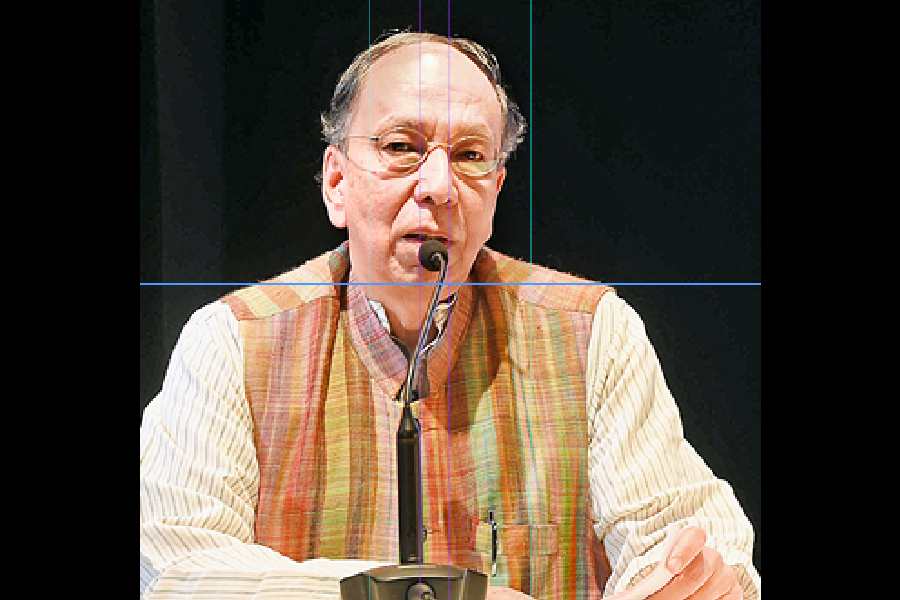The theory of majority and minority communities based on religion is a colonial construct that is antithetical to real democracy, historian Sugata Bose said on Wednesday.
“The British imperialists had taught us to think of majority and minority by privileging the religious distinction from the late 19th century. This was very much a part of their strategy of divide and rule. Therefore, we have to move away from the colonial definition of majority and minority,” said Bose, grand-nephew of Netaji Subhas Chandra Bose.
He was delivering the keynote address at a programme to mark Minorities Rights Day at Dhono Dhanyo Auditorium in Alipore.
“The British imperialists never really spoke about minorities’ rights. All they would tell us was about safeguards for minorities. If we genuinely want to talk in terms of minorities’ rights, then we have to remember that minorities’ rights can only be achieved on the basis of equal citizenship rights,” he said.
Bose talked of Bengal’s liberalism as an antidote to the politics of religious
polarisation.
“Today, I want to talk about a special political tradition and a cultural tradition of Bengal. At the forefront of this tradition in the 20th century were Deshbandhu Chittaranjan Das and Netaji Subhas Chandra Bose. Steering the cultural tradition were Rabindranath Tagore and Kazi Nazrul Islam.... C.R. Das treated Hindus and Muslims equally. In 1923, he drafted the Bengal Pact to ensure equitable sharing of power between Hindus and Muslims.
“When Das became the first elected mayor of Calcutta in 1924, he saw there was hardly any Muslim representation in this city. That was when he appointed Huseyn Shaheed Suhrawardy as the deputy mayor. My grandfather, Sarat Chandra Bose, became the alderman and Subhas Chandra Bose — who had quit civil services and plunged into the freedom struggle — was appointed the chief executive officer. When Subhas Chandra Bose had to make 33 appointments to the civic body, he recruited 25 Muslims,” Bose said.
Bose, the Gardiner professor of oceanic history and affairs at Harvard University and a former parliamentarian, has written a piece in the latest edition of Desh, the Bengali fortnightly published by the ABP Group, the publishers of The Telegraph.
In that piece, titled “Smriti O Itihashe Bangladesher Biborton (The Evolution of Bangladesh in Memory and History)”, Bose said the liberal political tradition of undivided Bengal “could not be completely destroyed by Partition”.
Bose went on to quote in the piece, as he did at the auditorium on Wednesday, from a speech made by Sheikh Mujibur Rahman in Pakistan’s Constituent Assembly.
Opposing the naming of Pakistan as an “Islamic Republic”, Rahman, then a representative of Suhrawardy’s party (Awami League), said: “Fanatic Hindus such as RSS and Mahasabhaites might agitate tomorrow for declaring India a ‘Hindu Republic of India’. What right have we got living in Pakistan to kill the unfortunate Muslims of India, I cannot understand, Sir?’”
Wednesday’s programme was organised by the West Bengal Minorities’ Commission.
Leaders of different communities — Muslims, Buddhists, Jains, Christians, Sikhs and Paris among them — attended the meet. Each of them stressed that the underlying message of every religion is peace and brotherhood.
Ahmed Hassan Imran, the chairperson of the state minorities commission, said the true test of democracy is in the treatment of minorities. The current regime in Delhi has failed that test, he said.
He spoke of court petitions seeking the dislocation of over a dozen mosques and dargahs on the ground that they were built demolishing temples. “It has divided communities and sparked violence,” he said.
MLAs Javed Khan, Debasish Kumar and Mosaraf Hussen attended the meeting.
Sabir Ahamed, a researcher associated with the Pratichi (India) Trust, spoke of a two-pronged approach of the State to marginalise minorities. “One way is brazen and another subtle,” he said.
He cited “mob lynchings” on one hand and “legislation like the Waqf Amendment Bill” on the other.
Sabar Institute, a non-profit research organisation Ahamed is part of, shared on social media the findings of a 2017 RTI query to mark the Minorities Rights Day. It showed that despite making up 27 per cent of the state’s population, Muslims make up only 6.26 per cent of government employees in Bengal.











